About the Project
Our Team
We extend our sincerest thanks to the VA250 Commission, Virginia Humanities, staff from Oak Spring Garden Foundation, the John Marshall Center and the Virginia Museum of History & Culture for their support. Our AAHA Team members have faithfully participated in all aspects of the project, and their dedication has made the success of the project possible. Thank you!
Research for this project begins with Fauquier’s formation in 1759 through ca. 1800, so as to include referenced individuals present and incidents that occurred before and during the Revolutionary War era.
Our goal is to make information available for educators, historians, students, parents, family researchers and genealogists who are interested in their local Fauquier County and Virginia history. These histories to be complete must include the stories of Native, African and European Americans. This project delivers a portion of that story: Fauquier’s African American presence during the colonial and Revolutionary War periods.
A Special Thanks to Everyone Who Helped Make This Project Possible
Joni Albrecht, Director, John Marshall Center at the Virginia Museum of History and Culture
Angela Davidson, AAHA Grants Coordinator
Charlotte deButts, AAHA Volunteer
Danielle Eady, Programs Director, Oak Spring Garden Foundation
Luke Hearsey, AAHA Intern
Alison Herring, Independent Researcher
Jaeda Hill, AAHA Intern
Sheri Ann Huerta PhD, Public Historian and adjunct Professor of History for the Honors College at George Mason University
Norma Logan, AAHA, Collections Manager
Troy Marshall, AAHA, GIS Technician & IT Support
Catherine Merchant, AAHA Intern
Emily Nolan, AAHA Staff
Lisa Richard, AAHA Volunteer
James Stribling, AAHA Volunteer
Karen White, AAHA Director
VA250 Database
AAHA’s VA250 project was made possible in part by a grant from VA250 Commission in partnership with Virginia Humanities
Revolutionary War Soldiers of Fauquier County, VA
*This name appears multiple times in Russel and Gott’s book
Using the names found in the book Fauquier County in the Revolution by T. Triplett Russel and John K. Gott, a list of known soldiers from Fauquier County was compiled. These names were compared with public service claims as well as the list of enslaved individuals, found above, to create the following table. This table does not provide a complete number of enslaved individuals held by each soldier but rather indicates the number of entries that appear in the database with the soldier’s name listed.
Public Service Claims
This data was abstracted from Military Records, Certificates of Service, Discharge, Heirs, & Pension Declarations and Schedules from The Fauquier County Virginia Court Minute Books 1784-1840 compiled by Joan W. Peters.
Narratives & Stories
-
Project Summary
A summary of the final report of AAHA’s VA250 project, made possible in part by a grant from VA250 Commission in partnership with Virginia Humanities.
-
Bibliography
With Sheri Huerta’s assistance, the project’s growing Bibliography lists several resources focusing on the Revolutionary War era in Virginia.
-
A Story of Liberty Denied in America, Despite the Revolutionary War
The story of Jemima, an African American woman born in colonial America, by Alison Herring
-
Virginia Laws Related to Enslaved and Free People of Color
A list of Revolutionary Era Law provided by project partner Sheri Ann Huerta Ph.D.
-
A Free Virginia Family
The story of James Nickens told through primary source documents, by Karen White
-
Virginia Laws and the Pursuit of Freedom
Following Casar’s fight for freedom, by Karen White.
FAQs
How do I navigate the database?
To search the database, simply input the desired results into any or all of the search fields and click the search button. Listed below are descriptions of each of the 5 available search fields.
Name: This field is for the name of the free or enslaved individual. Please note that many records do not contain a name, so searches using this field will often produce fewer total records.
Slaveholder/Landowner: This field allows for a way for users to filter by a specific individual person or family. It is included because the slaveholder or landholder is often present when a name is not provided for the free or enslaved individual. Please note that names are provided in a Last Name, First Name format.
Est. Birth Year Range: The birth year is offered as a range because sometimes estimations had to be made when calculating birth years, especially for infants. It is suggested that searches using this field use a range of 5 years when looking for a specific individual to provide the best chance of finding associated records.
Sex: Clicking any of the checkboxes will filter by any or all of the selected choices. Some records are missing a value, the ‘N/A’ selection will add those records into the results.
Source: The source field shows the original dataset that the record comes from. Clicking the blue hyperlink will produce a page with additional information on the record.
The database limits searches to 25 records per page to improve search speed and load times. To navigate between pages, use the arrows below the records or enter the page number you wish to view in the box next to the arrows.
The results page, found by selecting the hyperlink on the record’s source, contains any associated information that does not fit into any of the fields above. Selecting the back button on this page will bring the user back to the search page.
To reset the search boxes and database, click the reset button found at the top of the page. The page may need a few seconds to reload before new searches can be made.
What do I do if I have an issue accessing the application?
Any questions or comments can be sent to Troy Marshall at tmarshall@aahafauquier.org. We can also be reached Tuesday and Wednesday from 10:00 AM to 3:00 PM on site or over the phone at (540) 253-7488.
